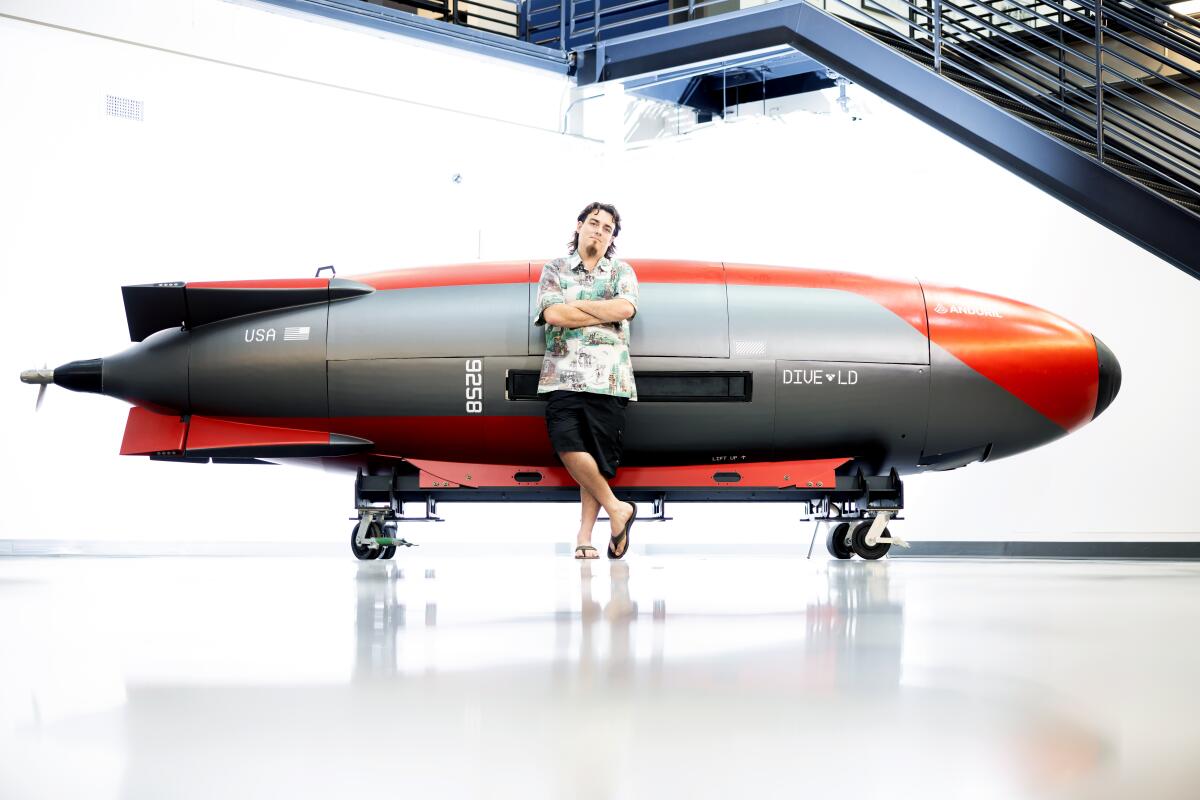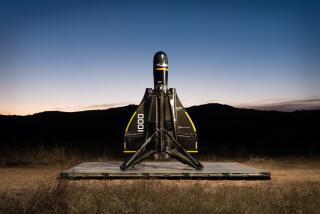Weapons startup Anduril hits $14-billion valuation, plans huge new facility

- Share via
Defense technology startup Anduril Industries Inc. has raised $1.5 billion in a new funding round and plans to spend hundreds of millions on a new facility to manufacture its rockets, underwater vehicles and other autonomous weapons systems at greater scale and speed.
The deal, which values Anduril at $14 billion, is one of the largest venture capital financings of the year so far, and reflects the company’s success getting government contracts, as well as rising investor enthusiasm for defense technology companies.
Peter Thiel’s Founders Fund and Sands Capital co-led the Series F funding round, which has been in the works for more than a month. The deal nearly doubles the startup’s valuation from its previous funding round in 2022, which raised $1.48 billion.
Anduril’s planned manufacturing facility is called Arsenal-I, and will sprawl over more than 5 million square feet, or roughly the size of 87 football fields. The location hasn’t yet been determined. As Anduril builds out its manufacturing footprint, the company is also investing in custom software, and plans an additional manufacturing site, which will be in the U.S. or in an allied country.
“Arsenal is as much a philosophy as it is a production facility,” Anduril Chief Strategy Officer Christian Brose said during a press briefing this week. “It’s a totally different way of thinking about building for scale.”
Anduril founder and Peter Thiel protégé Palmer Luckey is leading a new defense tech boom in Southern California, backed by billions from his first company.
Arsenal-1 will concentrate the manufacturing of almost all Anduril products into a central facility, the company said. The idea is to use technology-heavy manufacturing processes — borrowing from companies like Space Exploration Technologies Corp. and Tesla Inc. — to increase efficiency and scale.
The new funding round represents a big bet by Founders Fund and other investors that startups like Anduril can take market share from legacy defense companies. Founders Fund has deep ties to Anduril: Trae Stephens, Anduril co-founder and executive chairman, is also a Founders Fund partner. The firm, which has backed the company since its inception, was joined by new investors including Fidelity Management & Research Co., Counterpoint Global and Baillie Gifford.
While Anduril has secured some meaningful deals with the U.S. government and other militaries, longstanding traditional defense contractors still capture the lion’s share of U.S. defense dollars. The company believes that wars in Ukraine and Gaza, as well as rising tensions with China, could change that calculus.
In particular, Anduril aims to increase U.S. weapons manufacturing capacity, which it called dangerously lacking. A report from the Center for Strategic and International Studies found that in the case of a war between the U.S. and China in the Taiwan Strait, the U.S. could run out of some munitions in less than a week.
“The future needs to be different from the past and present,” Brose said. “The whole lesson we are taking from Ukraine is the importance of adaptability.”
Anduril said Arsenal-1 will employ thousands of people and will aim to produce tens of thousands of autonomous weapons systems annually. The facility will use mostly commercially available components and simple designs, allowing for faster adaptation, the company said. It will also centralize manufacturing that now happens at its factories in places like California, Georgia and Sydney.
The goal, Brose said, is enabling Anduril to deliver the manufacturing scale that the U.S. government has been requesting for years. “Having it all under one roof makes it achievable,” he said.
Chapman writes for Bloomberg.
More to Read
Inside the business of entertainment
The Wide Shot brings you news, analysis and insights on everything from streaming wars to production — and what it all means for the future.
You may occasionally receive promotional content from the Los Angeles Times.










